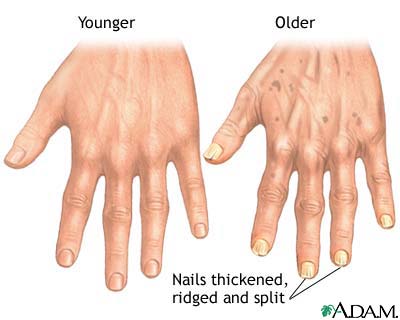 Researchers Say Excess Fat May Make Skin More Susceptible to Sun Damage
Researchers Say Excess Fat May Make Skin More Susceptible to Sun DamageSmoking and weight are tied to sun damage and aging of skin on the face, a new study shows.
Long-term exposure to the sun causes physical and structural changes to the skin, resulting in photodamage. And photodamage causes coarsely wrinkled skin, color changes, and dilated small blood vessels on the face, according to Kathryn J. Martires of Case Western Reserve School of Medicine and colleagues.
The researchers studied 65 pairs of identical and fraternal twins who attended the 2002 Twin Days Festival in Twinsburg, Ohio. A total of 130 twins who ranged in age from 18 to 77 completed surveys, answering questions about their weight, skin type, smoking and drinking habits, and history of skin cancer.
Each subject was given a photodamage score, which graded characteristics such as wrinkling and pigmentation changes. Scores were assigned by clinicians.
Factors associated with higher levels of photodamage included age, heavier weight, smoking, and a history of skin cancer but not alcohol consumption.
"The Twins Days Festival provides a rare opportunity to study a large number of twin pairs to control for genetic susceptibility," the researchers write. "Among the most important results is that a history of skin cancer and photodamage are highly associated in a population that shares genetic commonalities."
This was true, the researchers say, in both identical and fraternal twins.
"The relationships found between smoking, weight, sunscreen use, skin cancer and photodamage in these twin pairs may help motivate the reduction of risky behaviors," the researchers conclude.
"Few epidemiological studies of twins have adequately examined associations between environmental factors and aging," the researchers write, noting that up to 40% of changes that contribute to an aged appearance are due to non-genetic factors.
Higher self-reported weight was found to be linked to photoaging, the researchers say, though a study of Danish twins concluded that higher body mass index was associated with less facial aging.

Martires and colleagues say excess fat may increase the skin's susceptibility to damage, but also help mask the appearance of wrinkles in older people.
SOURCES: News release, Case Western Reserve University.|
Bookmark this post:
|
|

0 comments
Post a Comment